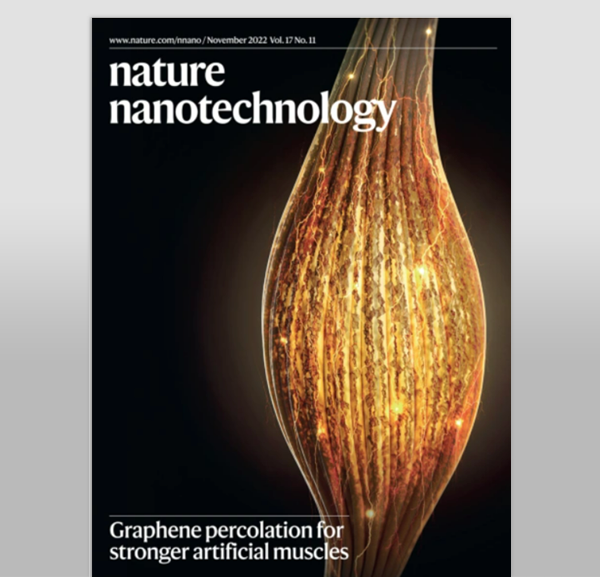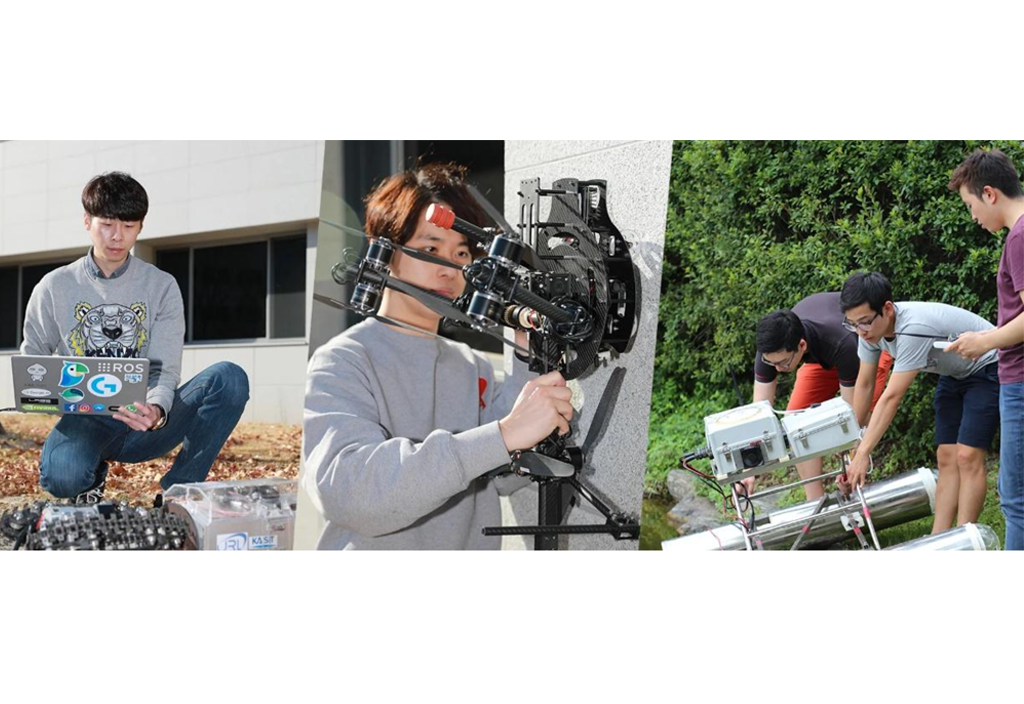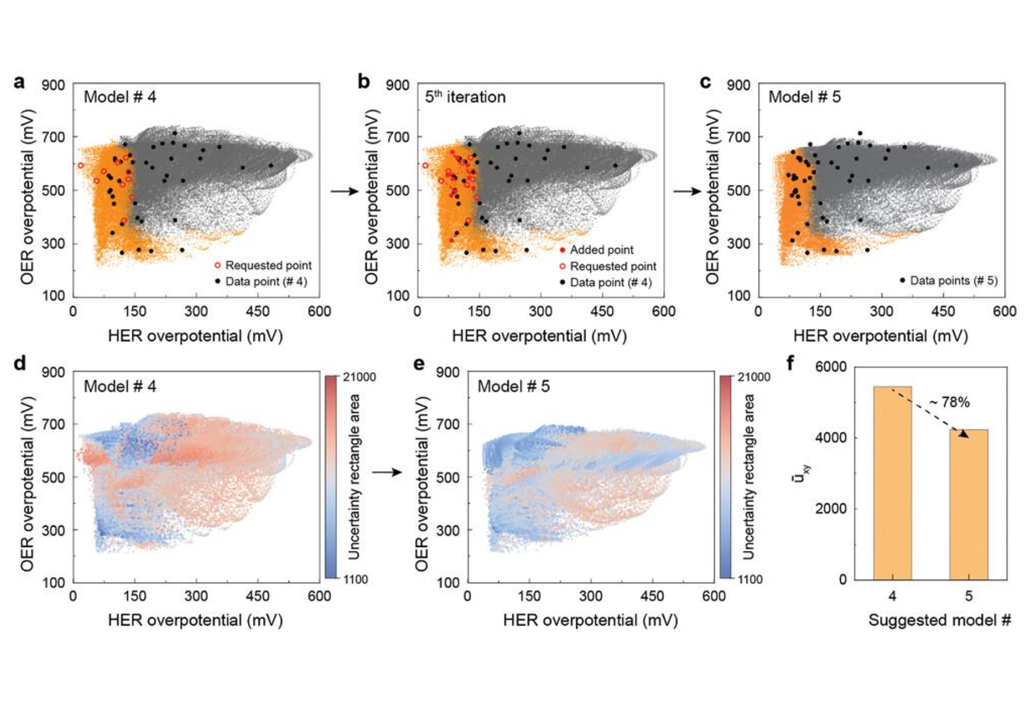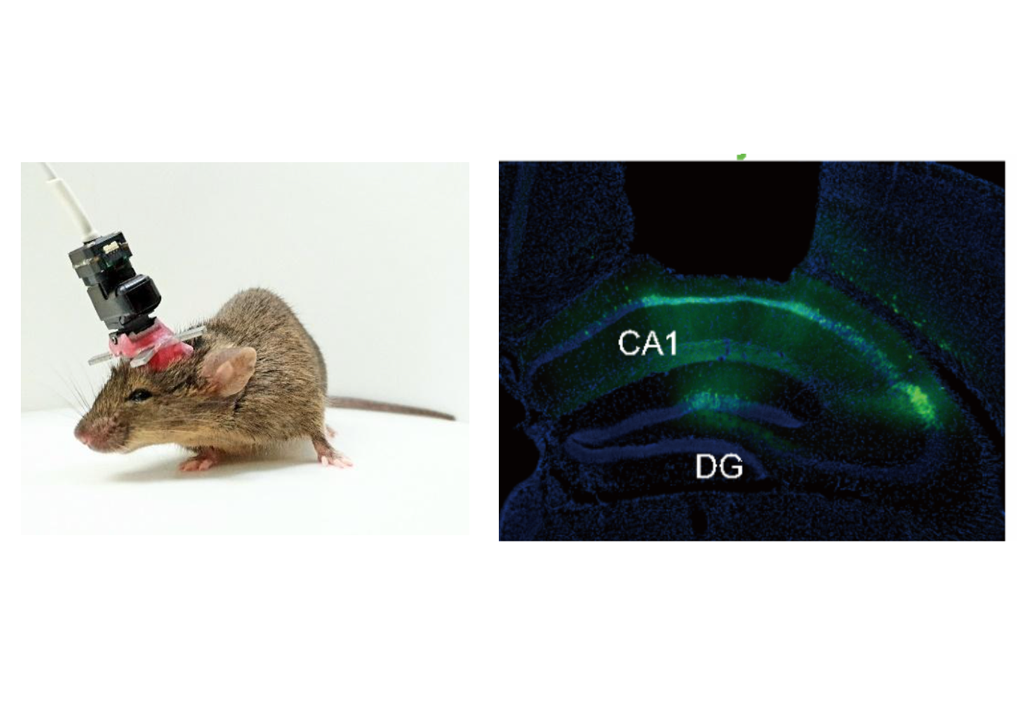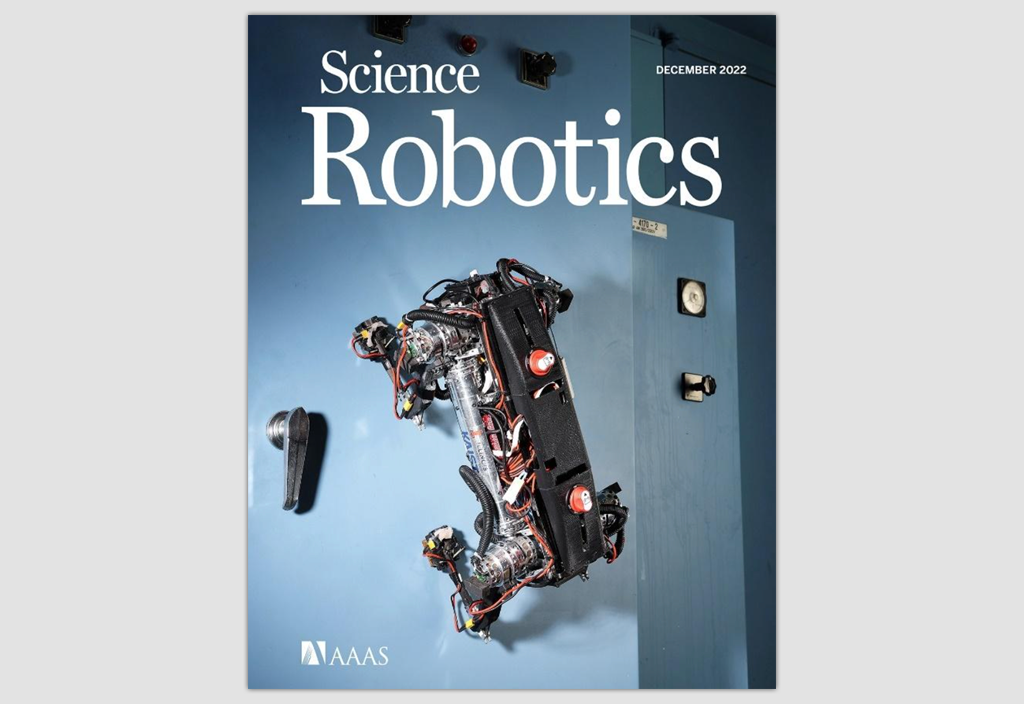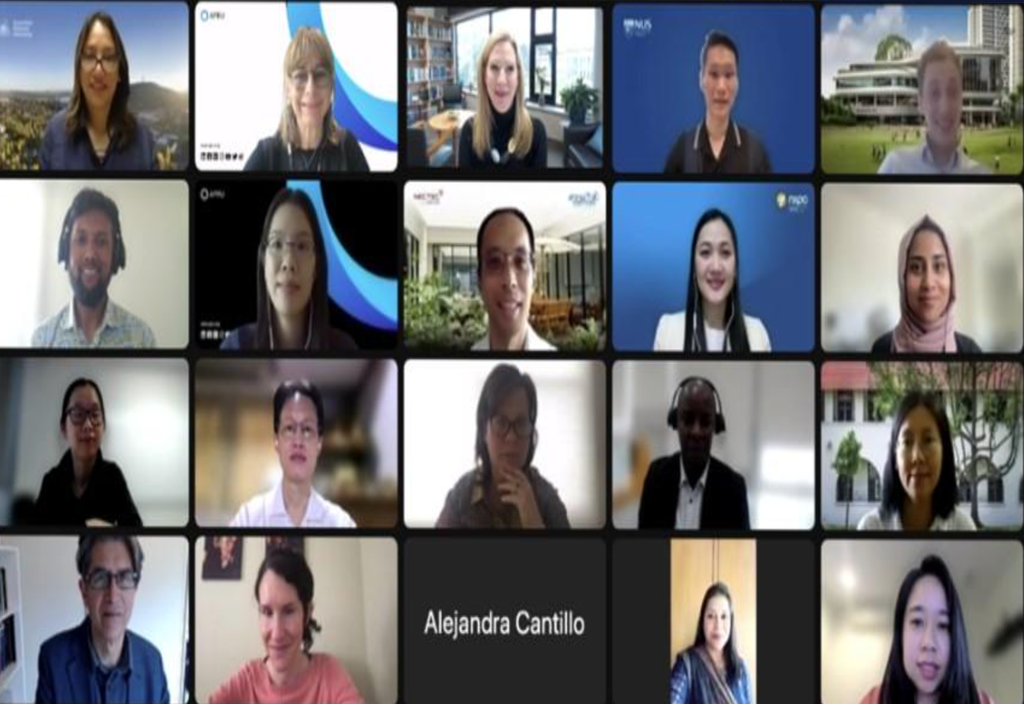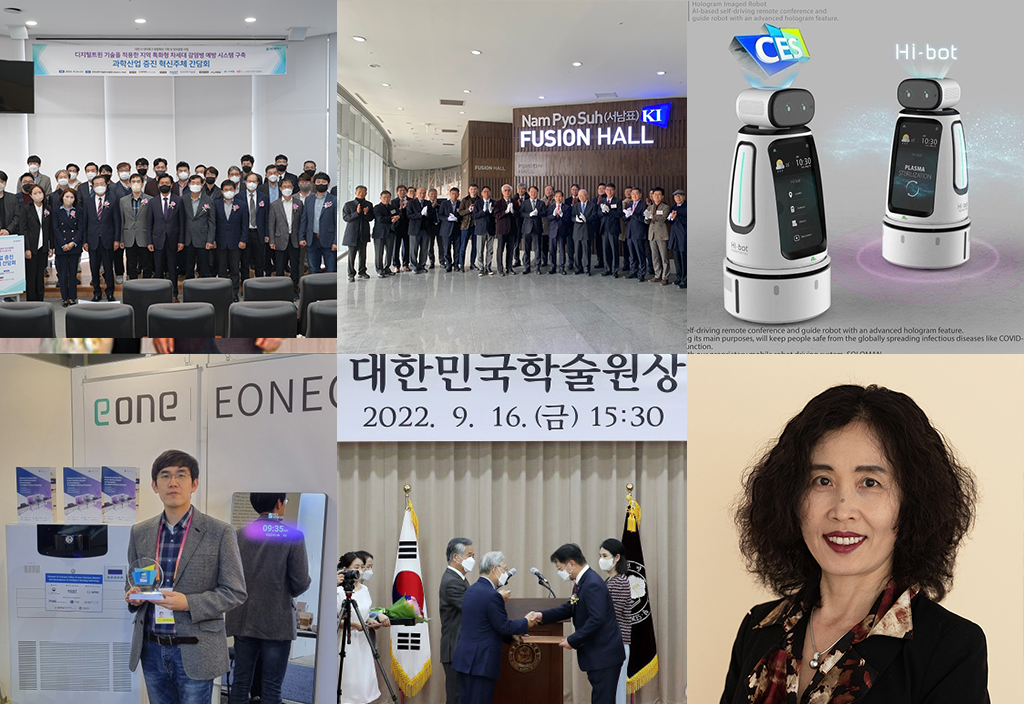- KAIST MatriX
- The official newsletter of KAIST Institutes
- kmatrix.kaist.ac.kr
-
share newsletter
Human muscle-inspired Hercules artificial muscle fiber
Prof. Sang Ouk Kim’s group has developed robust and durable actuator fibers by incorporating 2D graphene fillers in aligned liquid crystal elastomer matrix; these fibers surpass the strength and toughness of human muscle. The reversible percolation of the graphene filler network within the composite structure upon contraction/recovery actuation offers interesting electrical switching behavior, as ...read more
-
Introduction to KI
KI for Robotics
The Urban Robotics Lab (URL) focuses on research and development of robotics technologies for smart cities.
-
Research Highlight
Efficient Exploration of Multimetallic Alloys for Optimal Bifunctional Catalysts in Water Splitting through Pareto Active Learning and Experiments
A study published by Prof. Hee-Tae Jung’s group on the efficient production of renewable energy through the search for optimal bifunctional multimetallic alloy catalysts has shown promising results. The study used a Pareto active learning framework and carbothermal shock method for nanoparticle synthesis to efficiently determine optimal metallic compositions for bifunctional catalysts of up to four component elements for electrocatalytic reactions. The approach can be extended to different catalytic reaction fields and other multifunctional applications.
-
Research Highlight
Semiconductor Design Research for Artificial Intelligence (AI)
PIM is an abbreviation of Processing In Memory and is a kind of future semiconductor memory architecture. It makes it possible for memory and logic processing to operate together with higher speed and less energy consumption. In this bulletin, the three major activities of PIM-SDRC and its achievements are briefly introduced. The center will carry out key roles in building a PIM IP hub, making the infrastructure design service and relevant IP business, and training competent design manpower.
-
Research Highlight
Neural activity patterns correlated with memory recall
By recording neuronal activity in the hippocampus during memory recall in freely behaving mice, Prof. Han’s group has identified neural activity pattern correlates of memory recall.
-
Research Highlight
Deep Generative Diffusion Models
AAILab, KAIST has developed various deep generative model structures and inference methods to synthesize realistic images through diffusion processes.
-
Research Highlight
KAIST Develops MARVEL, a Fast and Agile Climbing Robot for Industrial Inspections and Maintenance
KAIST researchers have developed MARVEL, a fast and agile quadrupedal robot equipped with an Electro-Permanent Magnet (EPM) and a Magneto-Rheological Elastomer (MRE) foot sole that enables it to climb on steel walls and ceilings for efficient and safe inspection and maintenance tasks in various industrial settings.
-
Research Highlight
KPC4IR’S AI for Social Good Project on AI in Maternal Health now working directly with government agencies
The research project on AI for social good aimed at using AI and Digital technologies to transform maternal healthcare in Bangladesh has recently entered a new phase by working directly with the country’s government agencies. The UNESCAP-APRU-Goolge.org-funded Project aims to strengthen AI Capabilities and Governing Frameworks in Asia and the Pacific. As part of this project, KAIST KPC4IR is collaborating with NUS IPUR to support and accelerate the use of AI in medicine and healthcare in Bangladesh. The expert team is focusing i research and analysis on identifying crucial bottlenecks and gaps that impede the beneficial use of AI. These efforts are aimed at providing the Bangladesh Government with the technological and policy tools to address challenges in Pregnancy Monitoring & health care systems using Artificial Intelligence and digital technologies.
-
Activity
Featured Activities in Spring 2023
Visitor KPC4IR 2022.09.06 The Commission of Experts for Research and Innovation (EFI) is a scientific council that advises the German federal government on matters of research and innovation visited KPC4IR. KIR 2022.09.15 Invited Talk and Laboratory Tour: Prof. Paul Yun (EI Camino College, USA) – NASA Moon and Mars Missions KPC4IR 2022.09.28 African Development Bank

291 Daehak-ro Yuseong-gu Daejeon, 34141, Republic of Korea
Partnered with KAIST Breakthroughs and KAIST Compass




